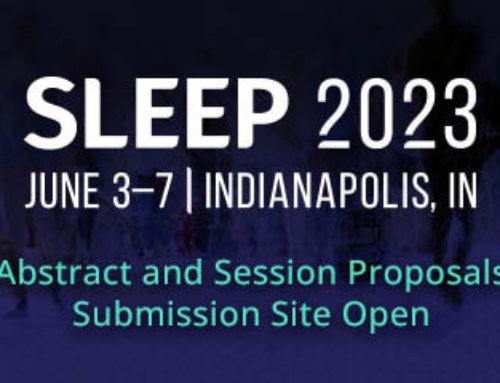CONTACT: AASM Director of Communications Kathleen McCann; 708-492-0930, ext. 9316; kmccann@aasm.org
WESTCHESTER, IL – First-time parents’ relationship satisfaction is related to the amount of sleep they get while caring for an infant, according to a research abstract that will be presented Wednesday, June 9, 2010, in San Antonio, Texas, at SLEEP 2010, the 24th annual meeting of the Associated Professional Sleep Societies LLC.
Results indicate that self-reported relationship satisfaction among new parents was strongly associated with objective total sleep time measured by actigraphy. This association was stronger than the association between subjectively reported sleep and relationship satisfaction.
“We were surprised to discover that objectively measured sleep predicted relationship satisfaction above and beyond the couples’ subjectively reported sleep,” said lead author Salvatore Insana, a graduate research assistant in the Sleep and Behavioral Neuroscience Laboratory at West Virginia University in Morgantown. “In other words, how parents actually slept had a greater impact on their relationship satisfaction than how they think they slept. This was true for both mothers and fathers.”
The study also found that first-time fathers were more satisfied than their partners thought they were: Mothers significantly underestimated fathers’ self-reported relationship satisfaction. Mothers also overestimated fathers’ self-reported sleep quality, while fathers underestimated mothers’ subjective sleep quality.
Insana and principal investigator Hawley Montgomery-Downs, PhD, studied 22 couples who were first-time parents. The parents had an average age of 27.6 years, and data were collected from each couple an average of seven weeks after the birth of their child. Parental sleep efficiency and total sleep time were measured by one week of continuous wrist actigraphy. Participants also used a Palm Pilot each morning to provide a subjective report of their sleep and the sleep of their partner. At the end of this week, participants reported on their own and their partner’s relationship satisfaction using the Comprehensive Marital/Relationship Satisfaction Scale.
Although the study did not allow for an examination of causality, Insana said that it is logical to presume that postpartum sleep disturbances have a negative effect on relationship satisfaction. So it is important for clinicians to help new parents prepare for the sleep challenges that they will face after the birth of a child.
“Preventative measures that target sleep during the postpartum period could potentially be used to buffer against decreases in relationship satisfaction among new parents,” said Insana. “Furthermore, positive parental relationship satisfaction has been previously associated with positive parenting behaviors; therefore, our current findings could be used to ultimately promote positive parenting and healthy infant development.”
Insana added that previous research has found that parents have high levels of sleep disturbance and significant daytime functional impairments during the postpartum period.
“Cumulatively, this work suggests that postpartum parents, their infants and society may benefit from an extended family leave policy in the United States,” he said.
The study was supported by West Virginia University, the National Institute of Child Health and Human Development and the American Psychological Association.
The American Academy of Sleep Medicine reports that new parents should make their own sleep needs a top priority. Being alert and well rested will help couples provide the best care for their baby. “Sleep tips for new parents” are available online from the AASM.
The SLEEP 2010 abstract supplement is available for download on the website of the journal SLEEP at https://www.journalsleep.org/ViewAbstractSupplement.aspx.
A joint venture of the American Academy of Sleep Medicine and the Sleep Research Society, the annual SLEEP meeting brings together an international body of more than 5,000 leading clinicians and scientists in the fields of sleep medicine and sleep research. At SLEEP 2010 more than 1,100 research abstract presentations will showcase new findings that contribute to the understanding of sleep and the effective diagnosis and treatment of sleep disorders such as insomnia, narcolepsy and sleep apnea.
Abstract Title: Objectively measured and self-reported sleep: sentinel markers to relationship satisfaction among postpartum couples
Abstract ID: 0933
Category: Pediatrics
Presentation Date: Wednesday, June 9, 2010
Presentation Type: Oral
Presentation Time: 10:30 a.m. – 10:45 a.m.
###








